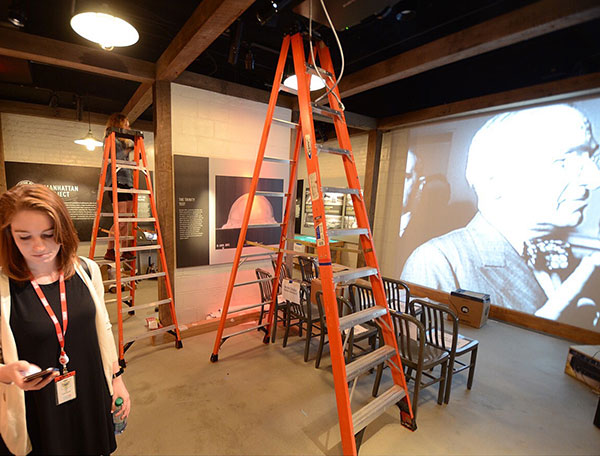
Our Alum Network
Public history alums foster a supportive network around DC and beyond.
Contact:
Correnti, Sarah E
Senior Administrative Assistant
Battelle Tompkins, Room 137 on a map
History 4400 Massachusetts Avenue NW Washington, DC 20016-8038 United States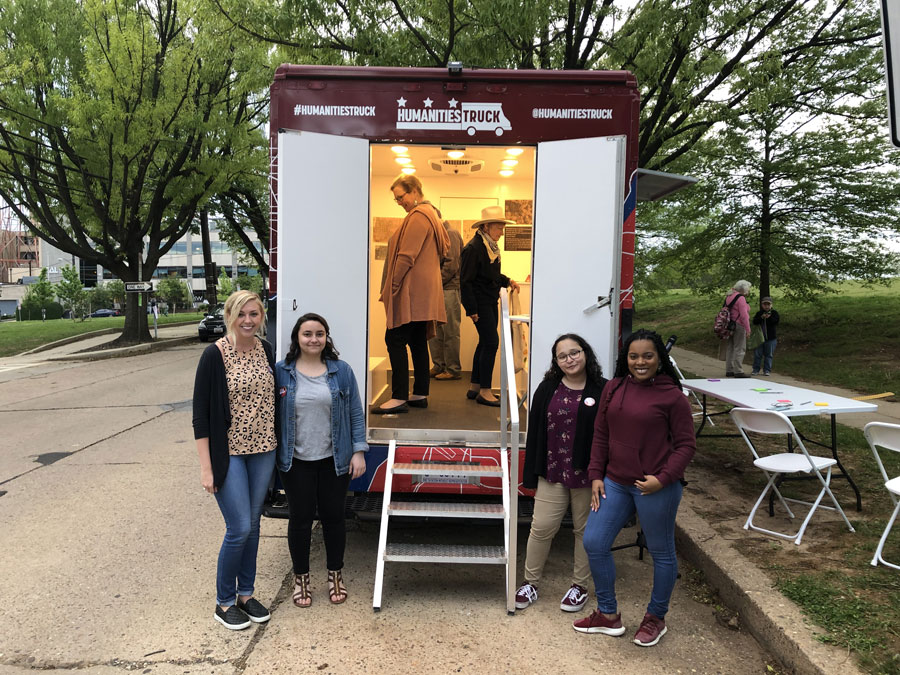
Students in AU’s Public History program engage with audiences, practitioners, and scholars in many different ways. Through projects like the Humanities Truck students can work across the greater Washington area.
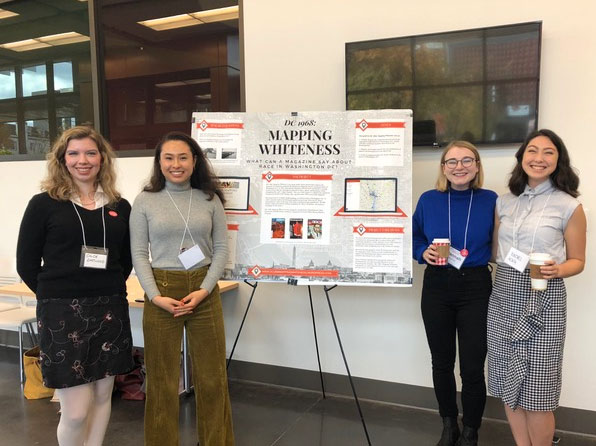
The Public History Practicum, typically taken in the second semester, is the curriculum's centerpiece and pairs students with local organizations for semester-long interpretive projects. Through these collaborative projects, which change each year, students produce exhibitions, collect oral histories, develop programming materials, and more.

Using conference travel support available from the History Department or from the College of Arts and Sciences, students develop their Practicum projects or other research into papers or posters delivered at the annual meetings of the National Council on Public History, the American Association of State and Local History, and the DC History Conference, among others.
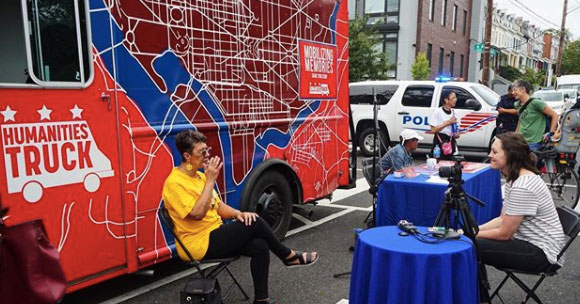
Local organizations also host students annually as Fellows. Students expand their public history experience and public engagement through these merit-based awards. Working for organizations like the White House Historical Association, the DC Preservation League, and others, fellows are immersed in their host institution’s professional environment and activities. Assigned projects and tasks related to their host institution’s larger goals, fellows gain experiences and skillsets that help form the foundation of their Public History practice.
Similarly, internships provide all students with the practical experiences and skills they need to enter the professional world of Public History after graduation. AU Public History students intern for organizations like George Washington’s Mount Vernon, the National Museum of American History, Tudor Place Historic House & Garden, Dumbarton Oaks Museum, Smithsonian Institution Archives and many more, in positions related, but not limited to education, social media, public programming, historic preservation, archives, and community engagement. Students tailor their internship experiences to their professional goals and use them to help bolster their job applications and professional networks.
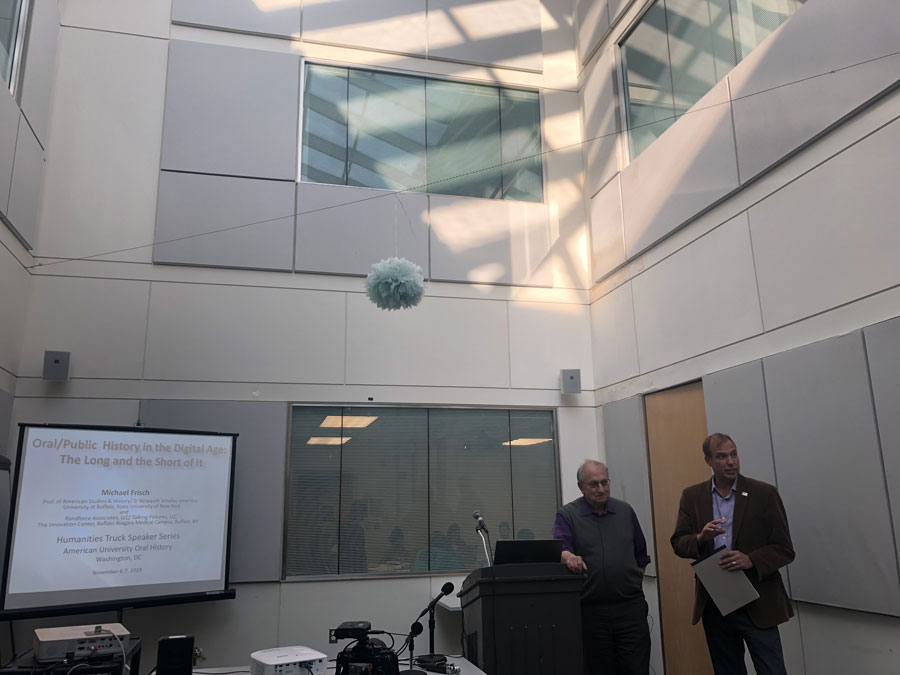 AU Public History faculty regularly invite local and national practitioners, community members, and scholars, to campus. With AU’s UPass, students are also encouraged to take advantage of DC’s rich cultural resources, and participate in talks, symposia, and events in the area. In and out of the classroom, students remain immersed in community engagement during their time studying at AU.
AU Public History faculty regularly invite local and national practitioners, community members, and scholars, to campus. With AU’s UPass, students are also encouraged to take advantage of DC’s rich cultural resources, and participate in talks, symposia, and events in the area. In and out of the classroom, students remain immersed in community engagement during their time studying at AU.

Public history alums foster a supportive network around DC and beyond.